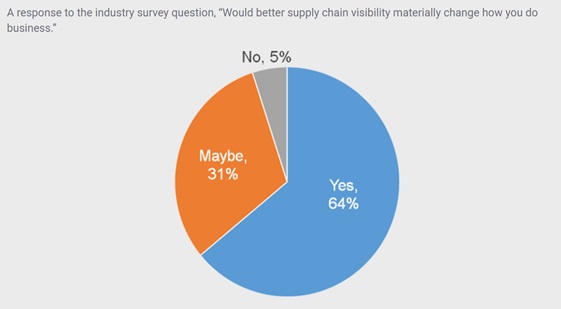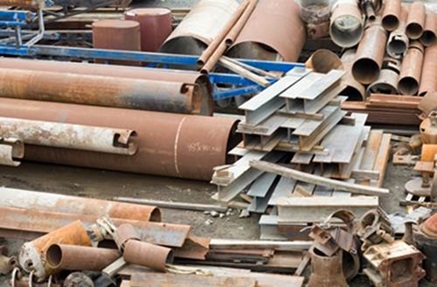Construction is an engine for growth in economy. Construction spending accounts for about 3.5% of the US GDP but the overall impact to the economy is much bigger as companies rely on construction spending to add capital assets that drive economic growth.
Unfortunately, construction productivity has been stuck for over 50 years. Technology has a role to play in fixing this problem.
We believe Blockchain can be a catalyst for improvement in construction by enhancing transparency, lowering transaction costs, improving supply chain management and reducing fraud. Because it is a completely new technology, the industry can build a new delivery model around it versus the old way of bolting on technology to existing business processes.
What is it?
Blockchain is one of the most promising new technologies. It is not just a fad. This new technology is changing the way that corporations exchange value with one another. It can bring numerous benefits for organizations, offering a more efficient, transparent and reliable system. Blockchain, as the name says, is a “chain of blocks” where the blocks contains a list of records, which are linked using cryptography. All the data is encrypted, therefore all information on the system is secured. Once the data is validated on the blocks, it cannot be copied, modified or deleted. Moreover, it can increase trust and sustain long term relationships.
Blockchain improves Transparency with Smart Contracts
Going back to 1994 and the UK’s Latham Report, there have been calls for improved transparency in construction. There is not currently an easy way to do that. Even with “open book” contracts, data is passed back and forth and a tremendous effort is required to normalize it between two or more parties. According to the US National Institute of Standards and Technology (NIST) “The cost of inadequate interoperability in the US capital facilities industry: $19.2 billion per year”. We believe blockchain is the technology solution the Industry has been waiting on with Smart Contracts.
Smart contract is a mutual agreement between two parties, as well as the rules agreed with each other – there is no need for middlemen. The information is written by cryptography assuring the safety of the individuals involved. This new distributed ledger technology can record and transfer data with transparency, safety, democracy and without a central authority, consequently lowering the costs and strengthening the integrity and confidentiality of the process.
Supply Chain Management
According to NIST, the US spent $307B on construction materials in 2010. The number is expected to be much higher now as the result of an improved economy, general inflation and the effect of trade disputes between the US and China. Despite the massive size of the construction supply chain, the tools that are used to manage it are primitive and inefficient. Most of the construction supply chain management is done through Excel, email and phone calls. The layers of wholesalers, distributors and resellers combined with a culture of off book price discounts and rebates makes it very hard for supply chain managers to know if they are even getting fair pricing. We should not be surprised then by the data that says there is huge room for improvement here. According to a survey completed by National Electrical Contractors Association (NECA): “Most contactors estimate they spend 1-5 hours per PO correcting order-handling issues, a factor that results in significant lost time and money.” Because of its built-in data sharing, blockchain can significantly reduce these types of errors. It can also reduce the effort required to track the supply chain. A recent CII survey revealed the need for this:
 Source: CII
Source: CII
Blockchain will also increase the adoption of vendor managed inventory (VMI) since the technology can allow for the immutable tracking of anything across the supply chain. To put it simply, clients can know everything about how their purchase was made, such as its quality and conditions, increasing the reliability of the goods and services received. Since the transaction is shared with everyone on the chain, the authenticity of a product can be verified by everyone on the system. As a result, the integrity of companies with their clients is maintained.
We often joke that construction is the only industry where shipping containers show up empty for storage and leave full after the project is complete. At the end of projects, it is common to have large amounts of material left on jobsites. Removing and/or repositioning the material adds unnecessary labour costs.
With blockchain technology is possible to track every transaction of a product, such as the quantity, purchase orders, receipts, shipment notifications or other trade-related documents. It can also verify certification and the quality of a product. Since all the data is synchronized, it can be shared with suppliers and vendors that are involved in the process.
 Reducing Fraud
Reducing Fraud
Even in developed countries, fraud is a major problem in construction. A study in the UK found that 10% of the cost of construction can be related to fraud. Since blockchain is a decentralised technology, all the data is accessible to everyone on the network, bringing more transparency to organizations and preventing possible fraudulent intentions. The conventional system is vulnerable and can lead to unethical behaviour due to personal interest of whoever manages the system.
In a construction project, there are a lot of processes, individuals, materials and products involved, such as money transaction/exchange, shared data and so on. Blockchain can increase trust relations with Contract Management, Equipment Leasing and Supply Chain Management. This can give a wider visibility of the overall project, such as assets and costs related in order to improve its performance, if needed.
Thinking forward
By adopting blockchain, construction industries enhance efficiency, increase productivity and reduce construction waste. Multinational technology companies, such as IBM, are adopting blockchain in construction process as to reduce challenges facing this industry.
Blockchain is an innovative technology that will provide more efficient processes, enhanced productivity, reduced management costs, transparency and increased trust for the construction industry.









